Caesareans by torchlight: Ukraine's doctors are operating without electricity
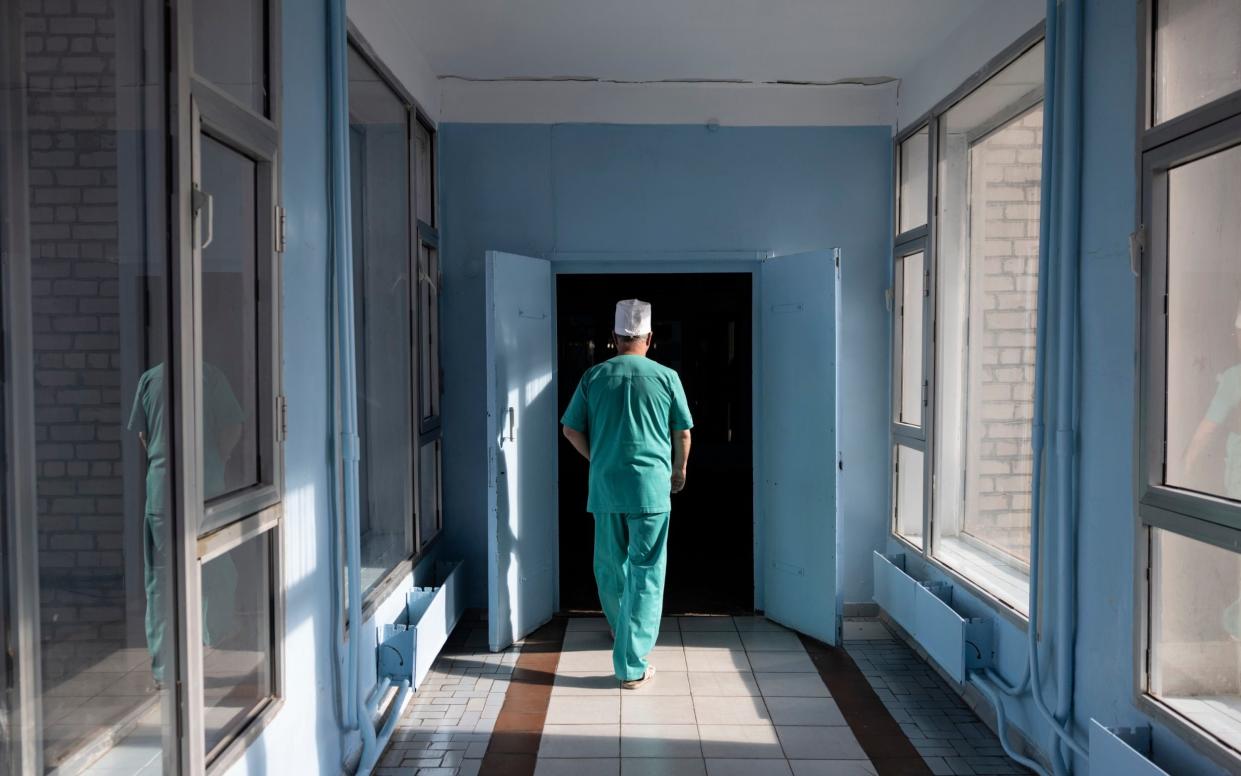
- Oops!Something went wrong.Please try again later.
The doctors were midway through the operation when the lights went out.
“It was a few days ago, when they were doing a caesarian section,” recalls Oleksandr Kachur, head of Kyiv’s Perinatal Centre. “For about 15 minutes they had to work with torchlight, before the generator kicked in.”
Similar conditions recently befell surgeons operating on a child’s heart in Ukraine’s capital, according to footage posted online last week.
“Rejoice, Russians, a child is on the table and during an operation the lights have gone completely off,” Dr Boris Todurov said in the clip as surgeons used headlamps and a torch at Kyiv Heart Institute.
Vladimir Putin’s missile and drone onslaught against the Ukrainian national grid has left millions with patchy electricity and long blackouts. The barrages and outages have added to strain on a health service which had already been stretched by two years of severe Covid-19 infection, mismanagement and corruption.
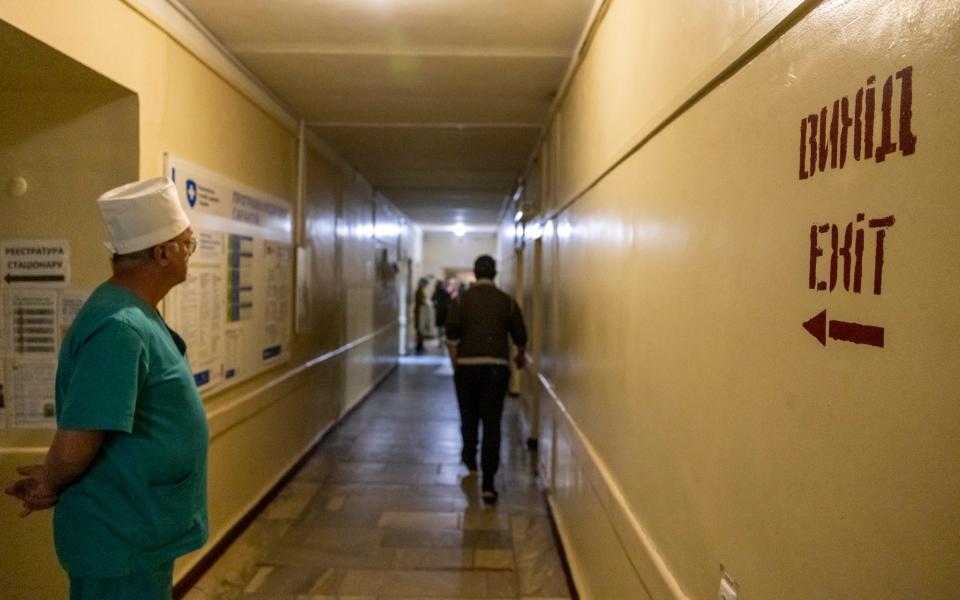
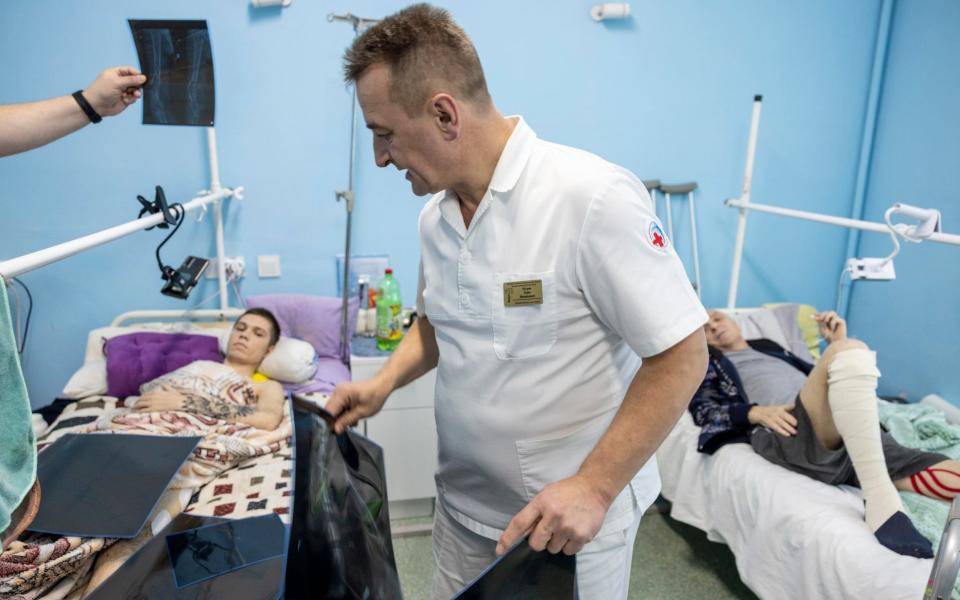
Attacks have not only knocked out power, but destroyed hospitals and clinics themselves. There have been more than 700 strikes on health facilities, the United Nations estimates. As fighting has raged, staff have had to leave their homes and abandon their jobs, undermining services.
Dr Hans Kluge, Europe director for the World Health Organisation (WHO), warned that Ukraine’s health system “is facing its darkest days in the war so far”.
“Having endured more than 700 attacks, it is now also a victim of the energy crisis,” he said last week. “It is being squeezed from all sides and the ultimate casualty is the patient.”
‘Intense’ situation
Yet health officials around the country also told The Telegraph that, despite the challenges, good planning and early preparations meant that they had been able to keep operating.
“Our hospitals are working, but of course the situation is intense,” said Igor Terekhov, mayor of the eastern city of Kharkiv. “Intense, but workable.”
The industrial city in the east of the country saw heavy conflict for several months at the start of the war and neither the city’s hospitals, nor its health service bureaucracy, were spared.
The fourth-floor office of Yuri Soroklat, healthcare director of Kharkiv’s city council, was hit by a Russian cruise missile earlier in the war.
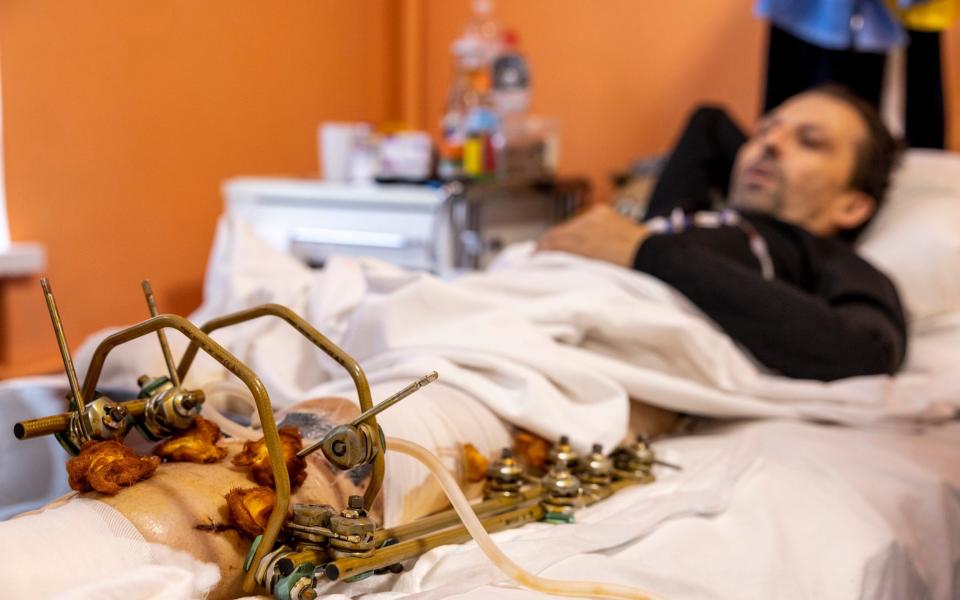
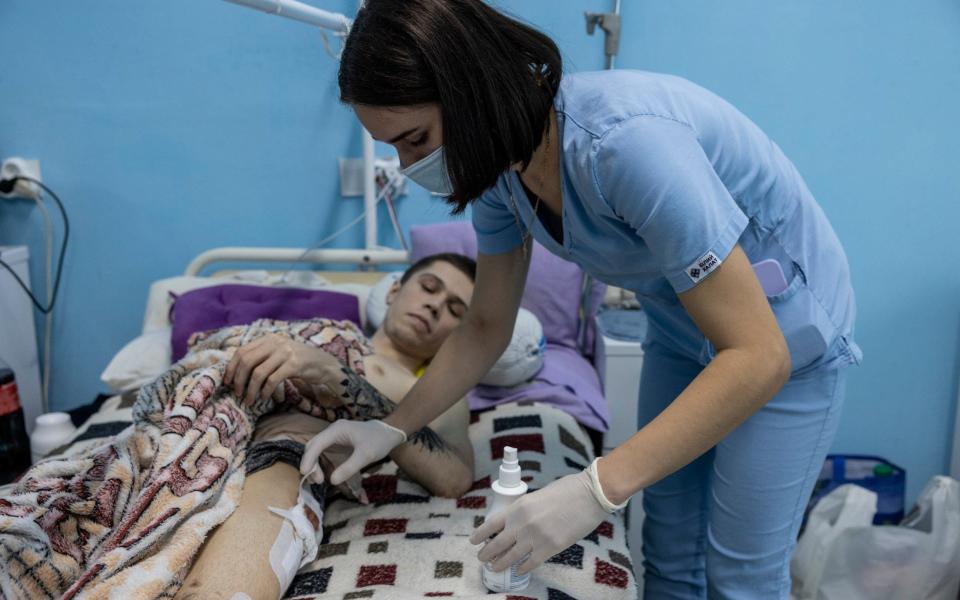
The blast was so strong that he later found debris from a car inside the destroyed office.
While he was spared, the attack destroyed all the databases, computers and records that he used to oversee the city’s 66 working hospitals and clinics. It was July until the systems were back up.
One ambulance depot and four health facilities were destroyed in the early fighting and are still knocked out, taking out around 10 per cent of the city’s hospital beds. Nine more facilities were damaged and are currently under repair.
“For now we are helping everyone who needs help,” Mr Soroklat told The Telegraph. “It’s harder than before the invasion, but now we are able to do it and we have all the medical supplies, thanks to volunteers.
“Of course we are worried about everything. We are worried about the heating systems, about all the supplies, about the fridges for medicine, but we have a plan.”
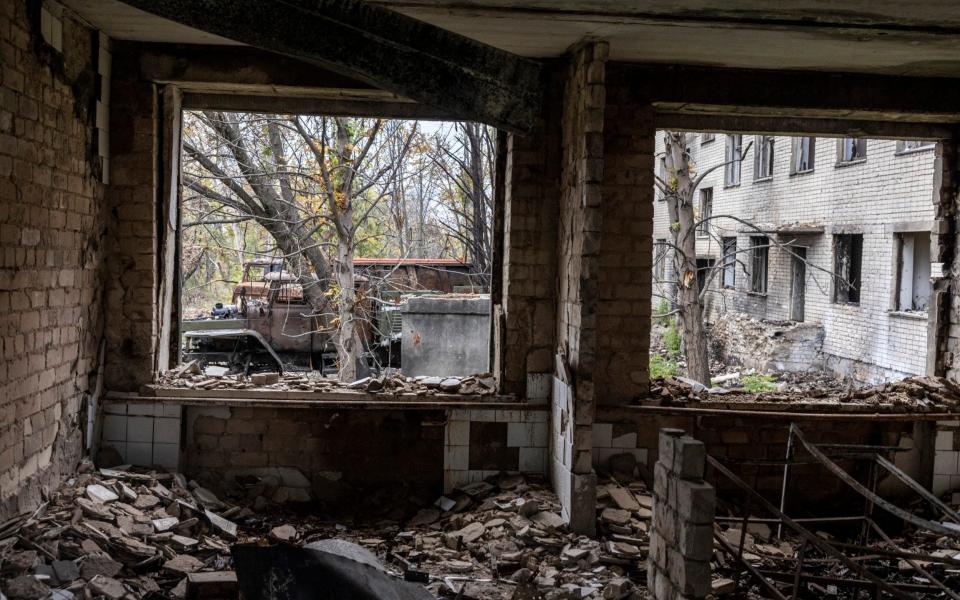
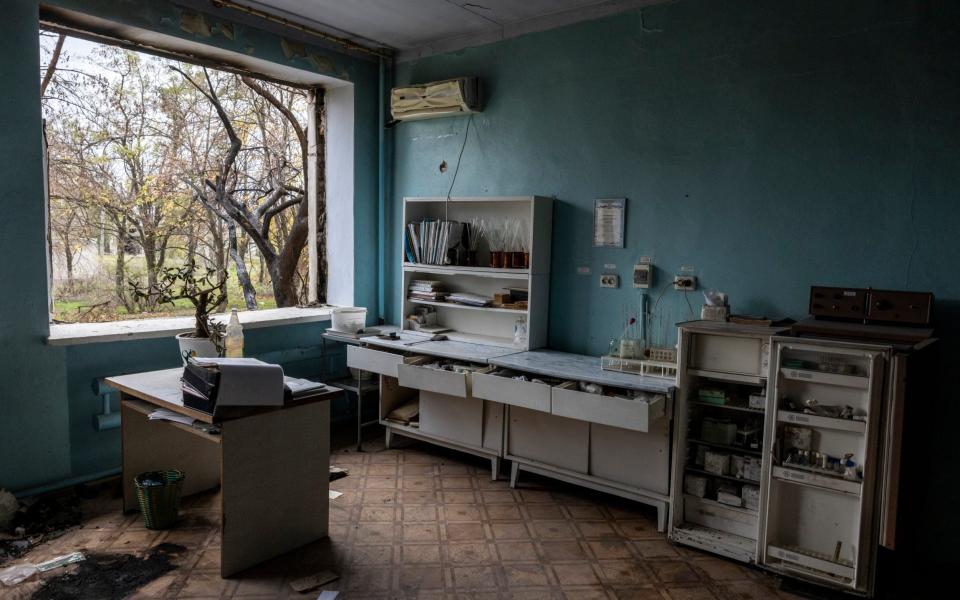
He said the early fighting had demonstrated to him right away that the Kharkiv health system would need to prepare early for the winter.
“In spring, we already understood that we had to be prepared for winter. It’s war and you don’t know what will happen,” he said.
Staffing has been one headache. In the early months of the war, when the Russian forces were on the outskirts of Kharkiv, his 14,000-strong workforce dipped to 7,000 as people fled.
“Half left the city to save their lives,” he said. Many have returned after a Ukrainian counter-offensive evicted the Russians in September, with employee numbers currently hovering around 11,000.
Power is his biggest worry, as it is for health departments around the country. The city has amassed 55 generators, many as a result of foreign aid, but he estimates they need another 80.
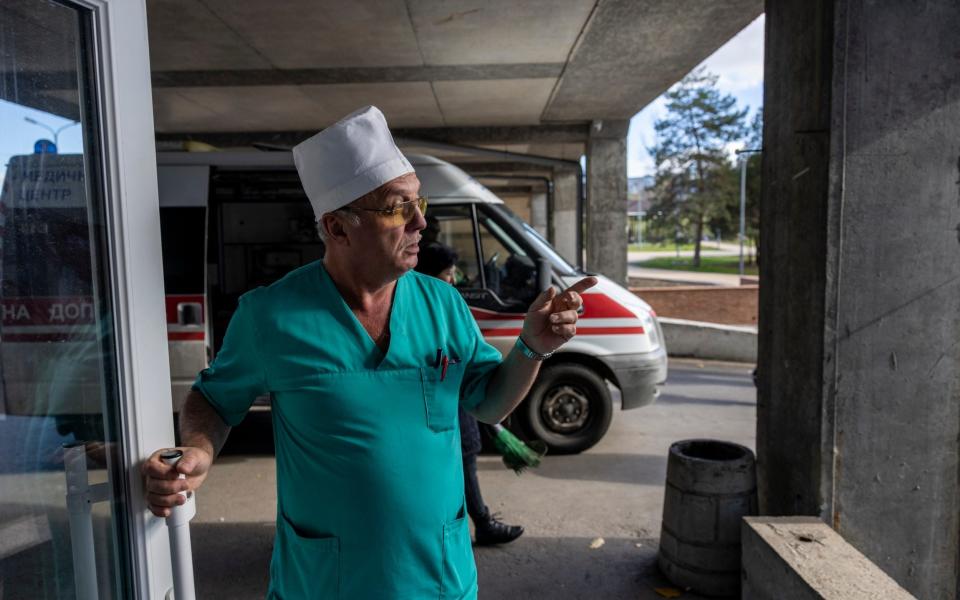
The question of how to get more generators and prevent hospital blackouts also haunts the mayor.
“How can we do surgery, how can the emergency department work without electricity?” asked Mr Terekhov.
“There should be very, very high capacity generators so that hospitals can have an electricity supply.”
Surgery was not necessarily the biggest problem, he said. Operations could be timed to when there was power.
“But after surgery how can people recover if there is no electricity? This is the question. How will all the other medical equipment work? It's a big problem.”
Shelling ‘all the time’
Fortunately, the city is confident it has plenty of beds. There are 7,000, even accounting for the hospitals destroyed in the spring. Only 3,600 are currently in use, partly because of how many people had left the city, said Mr Soroklat.
Staff at a medical centre in Kherson, who declined to be identified in case Russian forces across the Dnipro turned their attention to the facility, also said they were managing, but things were tight. Electricity had resumed 48 hours previously.
“There's shelling all the time and the situation is not stable. Some employees have left. But we are working.”
While some tried to keep their hospitals or clinics running on the front line, others found themselves under occupation.
One doctor in the Kherson region, who asked not to be named in case his hospital was targeted, said the occupiers had largely left him alone to carry on for the first two months.
At times they asked him to treat Russian soldiers, but they accepted whatever excuses he made about not having enough medicine or beds. He directed colleagues to hide the most expensive equipment so it could not be looted.
But as the Russians exerted a tighter grip on their new territory, they later asked him to collaborate by taking a more formal role in a health administration under their command.
“They interviewed me for three hours. They were perfectly polite, but when it came down to it, there were two of them and they had guns. I was worried that if I said no, I would end up tortured in a basement.”
He said he needed time to think it over. The next day, he fled to Ukrainian-controlled territory.
Protect yourself and your family by learning more about Global Health Security

